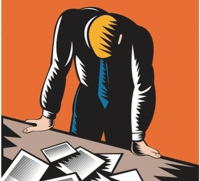Handling Teacher and Student Testing Burnout
I am so fed up with testing. In the state of Texas, out of 180 days of instruction, there are over 35 days of testing of one form or another. That is nearly 20 percent of the instructional year spent on state standardized testing. That does not include the district benchmarks, SAT, PSAT, ACT, AP course testing and even a few more!
In Texas, if a student does not pass each of the five STAAR end-of-course tests each year, the student could be taking 15 discrete tests and retests their senior year in order to graduate.
I am not the only one that has a visceral reaction to burdensome standardized testing. Many of the teachers at my school have mentioned that they are tired of the constant pressure of getting their students ready for the end-of-course testing. Students are tired of it, too. Don't get me wrong, I think the end-of-course idea is going in the right direction -- holding the students accountable for how well they do -- but too much time and effort is invested in a minimum standards test when students and teachers should be placing their efforts on maximum standards.
While the new testing in Texas purports to challenge students at higher levels, there is a lot of instruction that's not at higher levels. Burnout in teachers and students occurs when lessons consist of nothing more than teacher lecture, worksheets, and answering the questions at the back of the chapter; this is teaching to the minimum standards of the test. In my book, Teaching Students to Dig Deeper, I explain that in order for students to really learn, student-active engagement in deep thinking is what drives short-term memory into long-term memory.
Interestingly enough, doing what it takes to get students to think deeply is what makes teaching and learning fun: projects, collaboration, role-plays, experiments, and hands-on -- and in the face of mounting pressure to cover material and prepare for the minimum standards tests, these are the things that are typically skipped.
The Promise of Technology
So how do teachers and students on the verge of testing burnout, "hold it together" and not blow up? One of my teachers, Mr. Elizondo, responded that technology was the answer. He shared his views with me and introduced an idea called TEAL (technology enhanced active learning). He proposed that technology, used appropriately, has the capacity to liven-up the lessons, thereby increasing effectiveness through higher interest and engagement. Adding multimedia to lessons is only a part of the TEAL. The other part is to give the students a compelling reason to find information, solve problems, and create solutions using technology.
Our iPad experiment is going well. Teachers and students at Southside High School are using the iPads to make it easier for students to get to that deep thinking. I see the students more and more retrieving information and exploring learning instead of just playing games or tweeting (both of which were big concerns at the beginning of our experiment). I ask students all the time, "Does the iPad make you smarter?" They typically respond that no it doesn't, but it makes it easier to get to the answers to their questions.
Until the states decide to trust their educational professionals in the classrooms, the teachers will have even more standardized testing, and with less instructional time, we have to maximize the learning. TEAL is one way to do that.
How do you use TEAL in your classroom? Please comment in the section in below.
